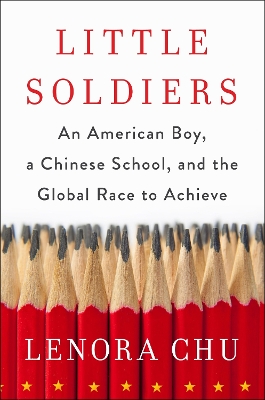The author is the first generation American daughter of Chinese immigrants. She had a hard time reconciling her parents' attitude toward education with her American school experiences. Now she and her American husband moved to Shanghai just in time for their oldest child to join the Chinese school system at age 3. Should he go to the state school or should they send him to an international school?
The book follows the first few years of Rainey's Chinese education. It both affirms and challenges what the author thought she knew about Chinese education. From the first days when the children are continually threatened by the teachers with arrest or not being allowed to see their parents again if they don't sit still to the teenage years and the national obsession with the college entrance test, she examines the effect of authoritarian teaching. The results surprised her.
I come from a family of teachers. What I learned from this book is that being a teacher in China is way better than being a teacher in the U.S.
- Teachers are to be highly respected. The proper response to a request by a teacher to a parent is, "Yes, teacher. You work so hard, teacher."
- Bribery and gift gifting to teachers are both expected and illegal. These aren't little gifts either. Vacations, gift cards with a month's salary on it, and luxury goods are considered appropriate.
She talks about the other downsides of Chinese teaching, besides the threats.
- Force feeding children
- Public shaming
- No help for special needs kids
- Crushing amounts of homework and additional classes with tutors that start as young as age 3
- Indoctrination in Chinese nationalism and communism
- Rote rule following and stifling of creatively
On the plus side, there is:
- Well behaved children who respect their elders
- Fluency in written and spoken Mandarin and English before high school age
- Advanced math skills
She talks to migrant parents who have left children at home in the rural areas of China in order to be able to afford their education. She talks to teenagers who are preparing for the college entrance exams and have differing takes on how to get ahead.
Ultimately she decides to leave Rainey in Chinese school up until 6th grade if he is still doing well. He will learn Mandarin almost fully by then and be strong in math. He will escape the pressures of the high school and college entrance exams that can crush students. They will continue to preach thinking for himself at home.
I did enjoy this look at education across China. I'd recommend it for anyone interested in educational theory. The narration was very well done in both Chinese and English.
This review was originally posted on Based On A True Story
